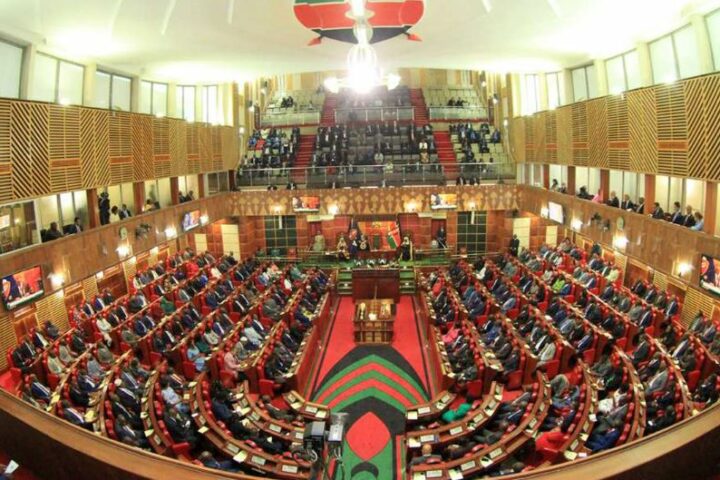 Kenya has one of the most dynamic betting industries in East Africa, with thousands of Kenyans engaging in daily wagers.
Kenya has one of the most dynamic betting industries in East Africa, with thousands of Kenyans engaging in daily wagers.
They bet on sports, casino games, and many other forms of betting. However, it has been discovered that punters have staked 88.5 billion Kenyan Shillings (KSh) in bets.
This result shows how strong the betting culture is in Kenya.
Although betting culture is rising, so is government pressure. Regulatory pressure is due to the increased use of cryptocurrency, which allows punters to engage in betting activities outside of traditional systems.
The government has been alerted as there has been a rapid rise in regulations and tax policies for the crypto sector.
Crypto Betting’s Role
Cryptocurrency betting has become a game-changer in the Kenyan betting scene.
Cryptocurrency offers transactions that are more private, anonymous, and flexible. These features make the crypto world more attractive to bettors who prefer private transactions with no oversight and want to avoid additional fees.
Cryptocurrency uses blockchain technology that provides transparent and secure transactions, which makes depositing and withdrawing safer and easier to do. Additionally, crypto enables the use of international betting platforms, which Kenyan authorities may not regulate.
The decentralizing system is another advantage of the crypto world. A decentralized system means that there is not just one owner or authority, everyone has equal rights in decision-making and planning.
This allows users to bypass local tax deductions on winnings, maximizing their returns without high tax rates.
As cryptocurrency is more integrated into the digital world of betting, punters are using it not only for gambling but also looking for investments. Some companies recognizing the potential of cryptocurrency offer it as a payment method, making cryptocurrency more available.
Tax Pressures
As crypto gains more traction, the government is taking measures to get potential tax revenue on these transactions. The Kenya Revenue Authority (KRA) is aware that cryptos’ decentralizing system makes tracking these kinds of activities difficult.
As of right now, the government is exploring ways to apply taxes to cryptocurrency. New regulations are proposed and the government is working on imposing them as soon as possible.
The government wants to apply tax on all cryptocurrency betting and traditional betting to ensure equal treatment across this industry. The government is actively investing in technology and working with international regulators to monitor crypto transactions more efficiently.
While cryptocurrency transactions are known for anonymity, the government is taking steps to identify users and apply tax where and if possible.
The efforts to impose taxes on crypto betting have sparked a debate.
For betting companies the government’s focus on crypto betting added new challenges to an already competitive market. Many companies are concerned about potential profit losses due to new regulations, and individuals have to wonder does it pays off to use new technologies.
Punters may get discouraged and even look to offshore platforms that do not fall under the Kenyan government’s jurisdiction.
Platforms that offer attractive promotions and bonuses for crypto-based bets like the ones listed on Oddspedia’s Stake.com bonus page, will further attract the interest of users and companies, despite ongoing debate.
Some groups believe that a tax system is essential for all users, as it would not be a fair system for others to bypass regulations.
The government believes that a balanced approach can create a better environment for traditional and crypto betting.
Either way, balance is essential, both in crypto and traditional betting, innovations should thrive alongside upgrades to traditional betting.
Future Implications
With the rise of crypto betting and the government’s response with measures the future of betting in Kenya may become even more uncertain.
Having the government involved has both negative and positive implications. For example, if these regulations come into effect, taxes could increase revenue which can be used for public services.
On the other hand, these regulations may make users stray away from using crypto betting or betting altogether, or even drive users into using unregulated platforms.
It is important to add that crypto will continue to grow and bring innovation even if regulations come into effect. Some companies are exploring the possibility of partnerships with international crypto exchanges to keep cryptocurrency flowing freely.
Punters brought in amazing revenue, which means the potential for the expansion of cryptocurrency only grows. Platforms, companies, users and the government will have to find a way to keep everything in balance.
Creating a more crypto-friendly environment will benefit all parties involved.
Conclusion
Kenya’s betting industry is gaining attention for winnings of 88.5 billion KSh in stakes and an increase in the popularity of cryptocurrency. This is not also gaining bettors attention but the government is also getting involved.
The government wants to impose new regulations which may either be beneficial or a loss to the industry. Companies must adapt to changes in regulations but also navigate the world of cryptocurrency.
As cryptocurrency only becomes more popular due to its advantages such as easier and more private transactions, the government wants to impose a tax system to even out the playing field for crypto and traditional betting.
A balance between these two worlds is essential as it determines the future of betting. This will tell us will this industry adapt to the oncoming changes or if will it be deterred from the digital world and what it has to offer.
This may affect traction as some punters may seek unregulated sites, bringing more challenges to this situation.








